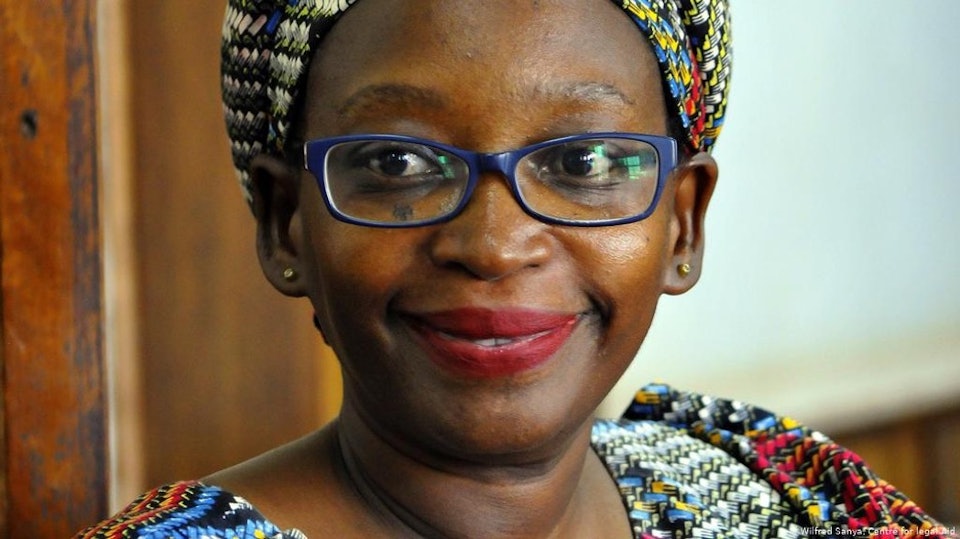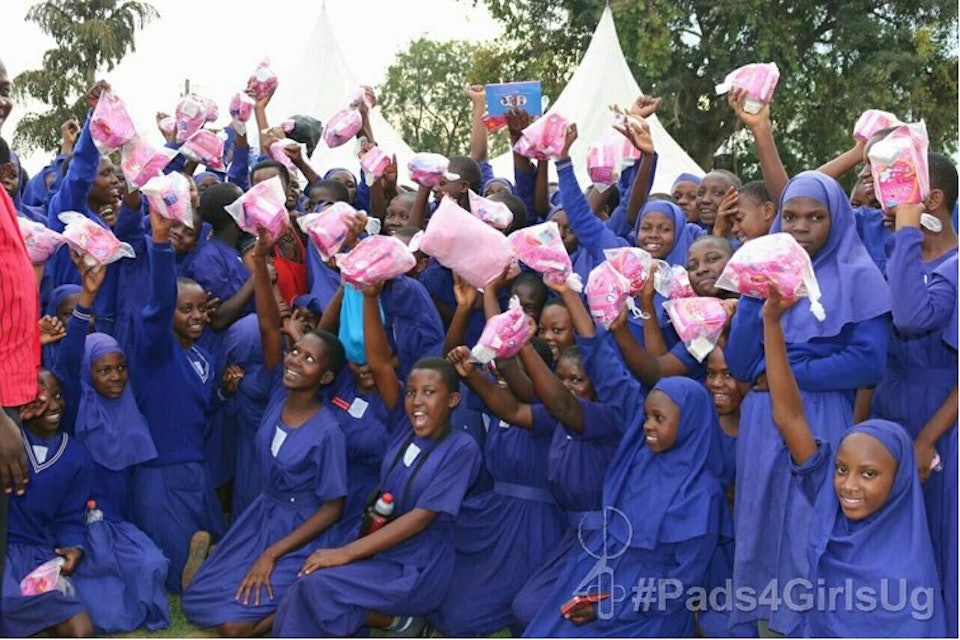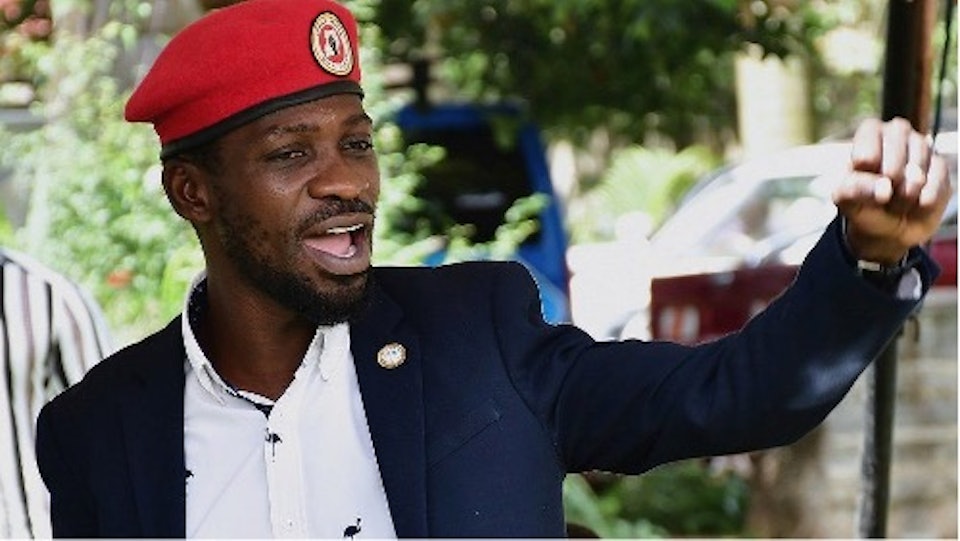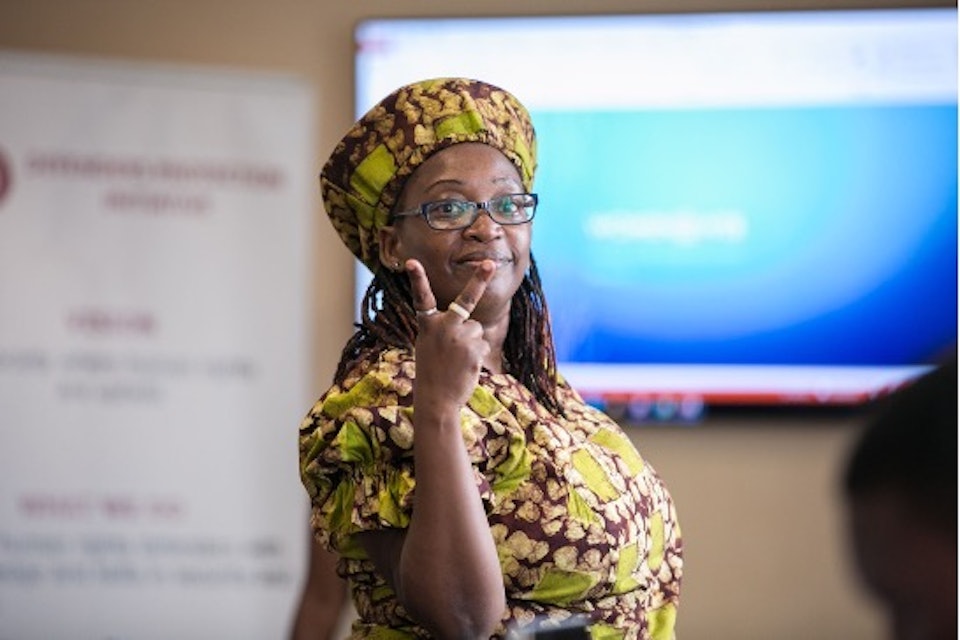Artist Profile
Stella Nyanzi
Uganda
Status: Threatened

UPDATE: Dr. Nyanzi is currently a participant in PEN Germany's Writers-in-Exile program. She now lives in Munich with her family.
Dr. Stella Nyanzi is a medical anthropologist, poet, feminist scholar, mother, and advocate for women’s health and LGBTQIA+ rights in Uganda. She has published numerous articles and works of writing and was a research fellow at Makerere University. One paper, “Dismantling Reified African Culture through Localised Homosexualities in Uganda,” is one of the many examples of her work that critiques Uganda’s Anti-Homosexuality Bill of 2009 and the surrounding debate of queerness as “un-African.” Her research shows the complex intersections between modern homophobia and colonization. Homosexuality became illegal in Uganda as a part of the Uganda Protectorate of the British Empire. Dr. Nyanzi’s argument shows how before Uganda was under Britain’s rule, homosexuality was never deemed un-African. Her studies showcased countless queer relationships in Uganda where people congregate in local communal areas and make relationships framed upon pre-colonial customary traditions.
Dr. Nyanzi also uses her research and writing to inform, influence, alter and advance Uganda’s views on healthcare and women’s rights. In 2017, she started #Pads4GirlsUG, a movement to provide free sanitary pads to girls who do not have proper access to them. The campaign was also a way to confront the Ugandan state’s inability to provide adequate healthcare for women and young girls and an opportunity for women and men in Uganda to offer leadership in place of government officials who abandoned them. Dr. Nyanzi ultimately raised funds for about ten million free sanitary pads and distributed them to school children, demonstrating how much impact everyday citizens with no political power can have when organized.

Amid Dr. Nyanzi’s years dedicated to academic research, community activism, and human rights, the public most recognizes her as an outspoken voice against President Yoweri Museveni. Museveni has ruled over the country since 1986, after spearheading a coup. In the years following, he was known to make every effort to block out forms of protest to ensure that he retained office. In 2013, he passed a law banning public gatherings of more than three people. In recent years, police have increased their aggression when cracking down on protesters and journalists, particularly those who reacted strongly to the government removing the presidential age limit.
Prompted by the government’s refusal to provide sanitary pads in schools, Dr. Nyanzi released a poem critical of President Museveni and his wife in February 2017. Among other things, the poem said of the President: “That is what buttocks do. They shake, jiggle, shit and fart. Museveni is just another pair of buttocks … Ugandans should be shocked that we allowed these buttocks to continue leading our country.” Two months later, Dr. Nyanzi was arrested and charged with “cyber harassment and offensive communication” under the country’s Computer Misuse Act of 2011. After spending a month in Luzira Prison, she was released on bail and the case was stayed.
Dr. Nyanzi’s use of vulgar language, profanity, and vivid imagery in her writing was successful in gaining an audience, especially in a country whose citizens are not allowed to speak about the government in such ways. Her post catapulted a movement around free expression and criticism of Uganda’s ruler. Dr. Nyanzi, however, is not the first to use profanity as a way of protest. A Ugandan tradition called “radical rudeness” dates back to the late 1940s before Uganda gained independence. It was a way to fight against the British, who enforced conventions of politeness and “rituals of sociability.” Social media became the perfect engine for modern “radical rudeness.” Through her writing, Dr. Nyanzi broke codes of friendship and mutual respect with the Ugandan government and continued the decades-long tradition of resistance.

Uganda’s colonial past is also deeply intertwined with its disempowering of women, a central facet in the rise of radical rudeness. "Uganda was colonized and Christianized by the British," said Dr. Nyanzi. "We were brought up to be good girls, to be decent, to be polite, to speak nicely to authority. Women here are not to be heard, they shut up, they don't speak, they're to be seen as beautiful.” Such conventions have not gone away, even after Uganda gained independence, and it explains why many women have used nude protest to reclaim power over their bodies and shock the public. When Bobi Wine was arrested, Susan Namata posted on Facebook threatening to "hit the President with her genitals." In a culture where a woman's body is meant to be "cherished" or "sacred," a woman having the agency to remove her clothes on her own is seen as vulgar. Naked protest effectively grabs the public's attention, bringing awareness to different political issues while also giving women the agency to expose themselves when they see fit, not when men want them to. Indeed, Dr. Nyanzi herself has used nudity as a means of resistance. When she protested against mistreatment at Makerere University in 2016, where she worked, she exclaimed profanities and stripped naked.
But unfortunately for Dr. Nyanzi, the prominence she gained from her poetry and activism in this vein continued to attract the ire of the government. In November 2018, she was arrested again in connection with another poem she wrote that September about President Museveni and his mother. This time, however, she was not released, and in August 2019 she was sentenced to eighteen months in prison. Finally, in February 2020, after sixteen months in prison, Dr. Nyanzi was released on appeal after a judge acquitted her and declared her trial unfair. About a year later, after a failed parliamentary run, Dr. Nyanzi witnessed people close to her being abducted and fled to Nairobi, Kenya, as an asylum-seeker on account of political persecution.

Dr. Nyanzi is not the only scholar and artist to speak out and face sanctions for it in Uganda. In 2018, a well-known musician and opposition member of parliament, Bobi Wine, was arrested by authorities. Wine, too, sought to channel his artistic fan-base into a political movement, becoming the major opposition candidate in the 2020 election. After he lost––an outcome many saw as rigged––his home was surrounded by military forces and he was placed under de facto house arrest.
Dr. Nyanzi’s defiance of being the “conventional woman” has put her at risk. But despite the injustices she has faced, she has also been met with international praise and respect and has become a source of inspiration for activists and women’s human rights defenders across Africa and the world. While she was in prison, she received both an award from Solidarity Uganda for being “a consistent human rights defender” and the Oxfam Novib/PEN International Award for Freedom of Expression for her work in academia, writing, and activism.

Despite the hardships she has faced and continues to face, Dr. Nyanzi has proven to be an influential figure for change in Uganda. As recent events have shown in Uganda, from elections that resulted in arrests and torture, to accounts of increased state surveillance as a result of the pandemic, the need for local leaders like Dr. Nyanzi to speak truth to power remains evident. "Invincibility is the wrong word for me," she says. "Mine is just a refusal to keep quiet."
By Statz Tatsumi Saines, May 2021. Statz is a recent graduate of Mount Holyoke College, where she received a BA in English.